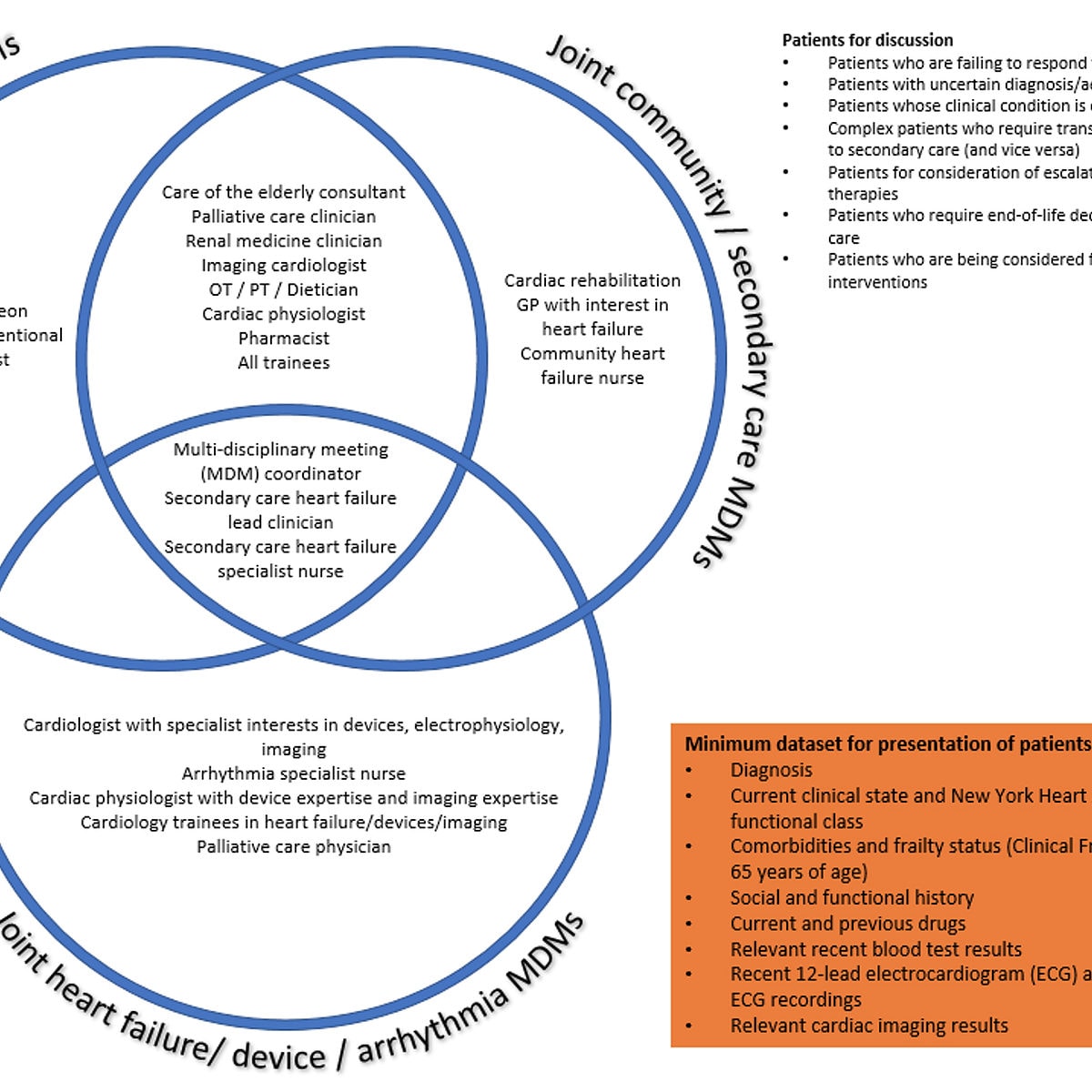By Dr Megha Agarwal
- Multi-disciplinary meetings form an important part of the clinical pathway for complex heart failure patients.
- The above titled document aims to outline the structure and function of such MDMs.
- It details that all cardiac networks should have formal pathways for the management of patients with heart failure. These pathways should address diagnosis, medical treatment, complex device therapy, rehabilitation, and end-of-life planning.
- 3 specific types of MDMs are suggested
- Secondary care heart failure MDMs, at least weekly, to discuss inpatients and outpatients, including discussions regarding surgical intervention, percutaneous valve repair options, and advanced heart failure therapies
- Joint community/secondary care MDMs, at least monthly, to discuss with and support clinicians managing heart failure in the community
- Joint heart failure/device/arrhythmia MDMs to discuss patients’ suitability for complex devices or potential electrophysiological ablation
- The document also outlines the specific roles and responsibilities of the MDM coordinator and MDM chair
The featured graphic shows the clinicians that ideally, but not exhaustively, should be present at each type of MDM and which types of patients would be suitable for discussion at the relevant MDM. The orange box lists the minimum dataset for information needed to sufficiently discuss each patient.

